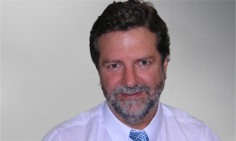SEEKING answers to clinical questions which arise directly from patient care is an important element of clinical practice.
Framing the most appropriate answer to these questions is a vital factor in individual patient care — it is a basic component of evidence-based medicine. It is also an ideal opportunity for the clinician to expand their knowledge and skills base.
Some questions that arise in a consultation can be followed up and answered post-consultation but many need to be answered in “real time” within the consultation. Obtaining the right answers to clinical questions is singularly important for generalists, as GPs generally will have questions about treatments and diagnoses than specialists.
GP vocational trainees (registrars) have particular information needs given their relative inexperience of the wide breadth of primary care medicine. Registrars function, in many respects, as independent practitioners in regard to ordering tests, prescribing medication, referrals, etc, but also have recourse to assistance and advice from experienced GP supervisors within an apprenticeship-style model.
Increasing access to clinical information and learning materials via advances in information technology offers the promise of ever-better clinical support for practitioners, particularly GP registrars.
How this will be integrated with (or even displace elements of) the current apprenticeship model is not clear.
I was part of a research team who examined registrars’ real-time information and advice-seeking activity via analysis of a cohort study of registrars’ in-consultation clinical and educational experience and behaviours — the Registrars Clinical Encounters in Training (ReCEnT) study.
In our analysis of 84 723 consultations involving 645 registrars we found that information or advice was sought for 15.4% of the problems/diagnoses that registrars dealt with (in 20.6% of consultations).
Sources of advice were a GP (that is, the supervisor or their delegate) in 6.9% of problems/diagnoses, other specialists in 0.9% of instances, other health professionals in 0.6%, electronic information sources in 6.5%, and hard copy information sources in 1.5%.
We were particularly interested in the findings related to a registrar choosing a human (mainly a GP) over a non-human (mainly electronic information) source. Significant associations of information seeking from a human source included:
- Paediatric or older adult (rather than young adult) patients
- The registrar being in an earlier stage of training
- The problem/diagnosis not being new
- Longer consultation duration
- The registrar referring the patient
- The registrar organising follow-up
- The registrar generating learning goals to be pursued post-consultation
- The information or advice being for diagnosis rather than management
These associations suggest that registrars (especially those who are more inexperienced) tend to seek human advice and information preferentially for more complex or difficult problems.
Complexity and difficulty is inherent in longer consultations and registrar concern was reflected in the greater likelihood of referral, follow-up and generation of learning goals.
These findings are despite the fact that the study participants were early-career GPs who have done their training in the internet era.
We concluded that even as the GP workforce increasingly embraces information technology, expert human information sources will still be vital for GP registrars to cope with complex clinical problems, irrespective of ongoing technological advances in information technology.
This is important information, bearing in mind that Australian general practice training is currently undergoing a period of fundamental restructuring.
While other analyses from ReCEnT have demonstrated that there are specific shortcomings in the apprenticeship model, it remains the cornerstone of vocational training.
In an environment of increasing multimorbidity and clinical complexity, this model may well be more rather than less fit for purpose.
Professor Parker Magin is a medical educator with General Practice Training — valley to coast, and conjoint professor in the Discipline of General Practice, University of Newcastle, NSW.

 more_vert
more_vert